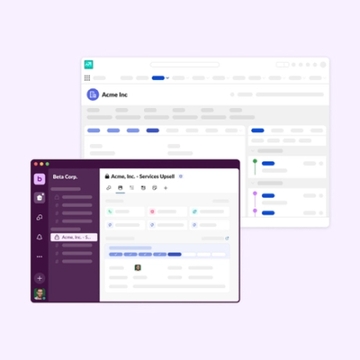
Running an airline is like building a house of cards. Any misstep or miscommunication can throw everything out of balance. If teams work and communicate with precision, the results are exemplary. If anything collapses, it can have a domino effect.
For Cebu Pacific Air, the leading airline in the Philippines, the stakes are high. Every day, it sends more than 400 flights to more than 60 domestic and international destinations across 14 countries.
From the ground operations to the flight deck and the nerve centre that controls the schedules and deals with any unexpected incidents, everything has to run like clockwork.
But staff will tell you that wasn’t always the case.
Cebu Pacific Air once relied on multiple platforms to communicate, with pilots struggling to integrate complicated legacy systems with modern flight tools, and talking to ground staff via headsets that were often out of range.
“There was no uniform platform. Chances of miscommunication were a lot higher,” says Cebu Pacific Air pilot Captain Chaitanya Patel. “We used to have flight delays just because our questions wouldn’t reach the relevant department on time, or their answers or solutions didn’t reach us.”
Macy Lukban-Tan, Cebu Pacific Air’s network control manager, who oversees flight schedules, gate assignments, passenger tracking, fuel loading, weather disturbances and flight monitoring, agrees that communication was haphazard.
“We were using walkie-talkies, emails, WhatsApp, Viber and SMS to communicate, or even just shouting at each other! We needed a platform where people could communicate quickly, make informed decisions in the moment and ensure every flight departed on time.”

“We have around seven legacy airline systems that we need to get a flight off the ground. Flight systems don't generally work well with other systems. But with Slack’s powerful API, we can stream updates from our legacy systems straight into Slack.”
Creating a central information and communication hub
To unify its communication, Cebu Pacific Air implemented Slack three years ago as its real-time knowledge hub and productivity platform.
Cebu Pacific Air’s director of operations systems Angelo Maria Berbano says Slack’s ease of use made it the best option for the airline.
“We have around seven legacy airline systems that we need to get a flight off the ground. Flight systems don’t generally work well with other systems. But with Slack’s powerful API, we can stream updates from our legacy systems straight into Slack,” says Berbano.
“This means that everyone is across everything from checking passengers, crew schedules, weather reports, and so much more.”
Slack’s architects worked with Cebu Pacific Air’s IT department to integrate the airline’s systems into the platform.
“We turned processes into workflows, timings into process triggers and even helped develop the training programs,” he says.
Dedicated Slack Channels for each department and flight
Every department now has its own Slack Channel—flexible spaces for all the people, from the ground staff, to fuel and maintenance, to get their work done. Each flight even has its own dedicated channel, which Slack automatically generates at least three hours before the scheduled departure time.
This provides cabin crew with basic flight information, fuel quantities, maintenance and security statuses, names of personnel and the plane’s gate details before they’ve even reported for duty.
Pilots are also able to check boarding status in real-time.
“Before Slack, we had to personally call the cabin crews to get the boarding status. Now Slack automatically notifies us what percentage of boarding has been completed,” says Captain Patel.

“Slack eliminates so much stress for our team. The time that we save using Slack helps us plan for the next day.”
Ready for anything with Slack
Airlines have to constantly prepare for and deal with the unexpected—such as flight delays, maintenance problems or bad weather—and this is where Slack truly shines.
“If ground operations at the destination airport were temporarily suspended, I can inform all the teams in real-time. Everyone receives the update quickly in Slack,” says Lukban-Tan.
“If the weather in Manila is not improving, dispatch will post all the relevant information in Slack. If I decide to cancel a flight, I post the flight number and destination in a Slack Channel and alert 50-100 people at once, who will then disseminate that information to other departments via other channels.
“Slack eliminates so much stress for our team. The time that we save using Slack helps us plan for the next day.”
For pilots in the Philippines, the chances of dreaded bird strikes are high, with many of the airports located outside cities. In the past, these could cost precious time.
“Before Slack, it could take two hours for us to get remote dispatch so that we could continue our flight,” says Captain Patel.
“Now, we can do the inspection, post pictures on our support channel and maintenance can process our request within seconds. It’s a turnaround time of just 20-30 minutes.”
Soaring on exceptional efficiency
Emoji reactions have been a huge time-saver for the airline too as the team don’t have to waste precious time responding to routine questions or updates.
“We use the emojis with two eyes to say we’re looking into something, and the heart emoji to advise if a solution has been found.”
If ground staff, network control and pilots are the pieces of Cebu Pacific Air, Slack is the glue.
“Slack has made our operations team much more efficient, which in turn makes them more productive. We’re saving around 114,000 annual hours in productivity,” Berbano estimates.
“Slack has been a game changer.”














